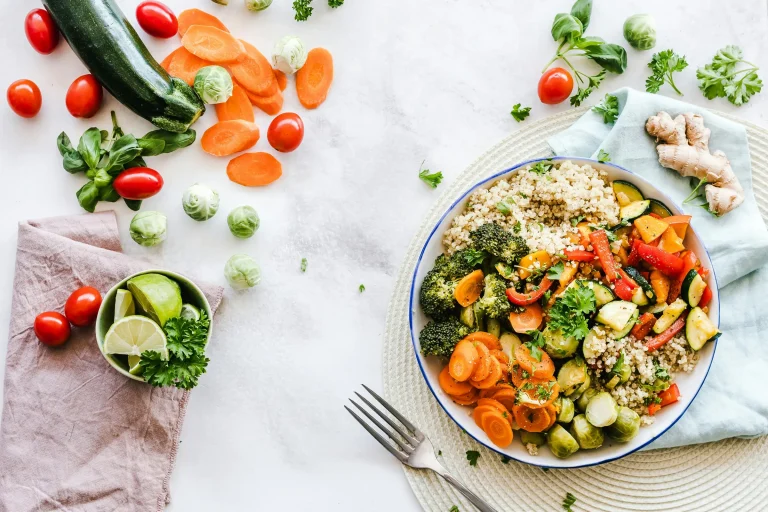Gluten-free foods seem to be everywhere these days. Restaurants and cafes regularly feature gluten-free dishes and pastries. Supermarkets offer gluten-free bread, rolls, and crackers.
Many people are reducing or eliminating their dietary intake of gluten. Gluten is a protein found in wheat, rye, barley, and sometimes oats. But only those who have celiac disease need to completely stop eating gluten. Celiac disease is a condition in which the immune system is abnormally sensitive to gluten. Others who have a gluten sensitivity may simply feel better if they eat much less of it.
How to tell if gluten is affecting your digestive tract
In people with celiac disease, gluten can damage the digestive tract. In particular, it harms the small intestine’s villi. Villi are small, fingerlike projections that absorb nutrients from food. If the villi are damaged, the body cannot absorb enough nutrients. You may begin to feel stomach pain, indigestion, bloating, and other unpleasant symptoms. Left untreated, the disease can cause conditions that are more serious.
Healthcare providers diagnose the need for a gluten-free diet based on the diagnosis of celiac disease. This is a diagnosis based on blood test results and biopsy samples taken of the small intestine. If you have celiac disease, you need to avoid all gluten forever, whether or not you have symptoms. However, symptoms are very common and can be intestinal or nonintestinal. In patients with celiac disease, these symptoms can include:
- Joint pain and inflammation
- Digestive problems, including stomach pain and bloating
- Indigestion and acid reflux
- Constipation or diarrhea
- Fatigue
- Anxiety, mood swings, or depression
- Vitamin deficiencies
- Skin rashes and itching
- Infertility
- Recurring miscarriages
- Migraines
- Canker sores
- Tingling in the hands and feet
Treating gluten troubles with diet
For anyone with celiac disease, eating gluten can damage the small intestine and other tissues and organs. This can make it hard for the body to absorb nutrients. Some people without celiac disease also have trouble tolerating gluten or are sensitive to it.
Diet is the main way to treat gluten intolerance or gluten sensitivity. A big part of a gluten-free diet is to avoid foods made with wheat, rye, or barley. This means most regular breads, pizza, cereals, pastas, cakes, and cookies. Also, many processed foods contain hidden gluten. The most common culprits are soy sauce, gravies, canned soups, nutritional bars, barley malt, and veggie burgers. It can even include medicines and probiotic, vitamins, and supplements.
Foods like rice, corn, quinoa, some oats, fruits, vegetables, and some alcoholic beverages, are gluten-free.
But even products like lipstick and medicines can contain gluten. If you have celiac disease, you’ll need to become an expert at reading food and product labels. This is a skill that your healthcare provider or a gluten-free support group can help with. Most people should see a nutritionist to help them since the diet must be done carefully and forever.
Be careful when replacing gluten foods with foods that are gluten-free. The National Institutes of Health (NIH) says that packaged gluten-free foods aren’t necessarily better or healthier. In fact, some gluten-free foods are higher in fat, sugar, and total calories than foods with gluten. As with any diet, the variety of nutritious foods in your gluten-free diet will determine how healthy it is.
Protecting your health by going gluten-free
If you are living with a gluten sensitivity or intolerance, you may choose to avoid or reduce your gluten intake. However, if you have celiac disease, you’ll need to work with your healthcare providers to make sure that you’re getting enough vitamins and minerals. Your healthcare provider can let you know if you need to take a supplement to replace any missing nutrients. Be aware that some supplements are made with ingredients that contain gluten, so be sure to choose supplements carefully. The NIH provides a list of foods and other products containing gluten.
After you start on your gluten-free diet, your small intestine will start to repair the damage to its villi. After a while, your body will begin absorbing food normally again. Your digestive symptoms will begin to disappear. You also should start to feel much better overall.
If you don’t notice enough improvement, it’s usually because small amounts of gluten remain in your diet. Also, other conditions can interfere with a gluten-free diet. These include irritable bowel syndrome, lactose intolerance, and bacterial overgrowth in the intestine. Check in with your healthcare provider regularly to check on your condition. Call your healthcare provider right away if you continue to have symptoms or side effects once you’re on a gluten-free diet. In rare situations, the disease and symptoms continue even with a completely gluten-free diet. In this situation, more tests are needed.
Untreated celiac disease can lead to chronic permanent health problems and increase your risk of certain cancers.









